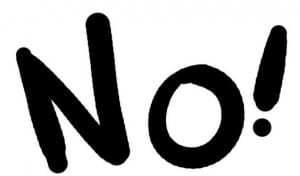Once more Thesis Whisperer is a mirror. Last time supervisor stress, this time the need for academic resilience in the face of rejection. I was low after being turned down for an opportunity to talk about my research then Raising the Risk Threshold appeared on my feed. I read the first line… When you get rejected from a journal or conference, or your grant doesn’t get up… and was hooked!
The post is about being unsuccessful and dealing with it. Tseen Khoo calls it academic resilience. I call it Academic Aptitude. AA to the rescue. You have to get good at dealing with rejection. It’s a learning curve. An exercise in positive thinking. Finding something you’ve done is not considered good enough hurts. Moving on takes guts but it has to be done. The easy option is to think I’ll never do it again but risk taking goes with the research territory. There’s no substitute for conference presentation, publication or a successful funding bid. Even when you’ve accepted you can’t change the world, but believe you could alter a tiny bit of it, getting your story out there and networking with like-minded people is a necessary part of the academic game.
No matter how you say it, the word ‘no’ never sounds good in the context of rejection. It makes you feel vulnerable. Not good enough. You beat yourself up over the smallest detail and end up doubting the whole research package. We all deal with rejection differently. Responses are complicated by gender, age, career status, existing workloads and colleagues. It takes one to know one. Empathy comes from experience. I know who I can and can’t talk to. I’ll get over it and by next week will have moved on. It’s the here and now which is uncomfortable but it’s been a busy week and I’m tired. Two time zone changes and 15 hours with Virgin Atlantic in 5 days. But now it’s back to business!
Academic Aptitude is an essential skill, right up there with critical evaluation and reflective practice. AA is not just being gifted in a specific discipline, it’s about attitude; in particular towards research and being dedicated to the research process. It’s about looking ahead, moving on, knowing bruises fade and other opportunities will appear. It’s about a special kind of strength and being prepared to temporarily skew the work/life balance. I was down but felt better for reading Raising the Risk Threshold. Whether face to face or online, there is always consolation in sharing failure.
——————————————————————————————————————————————————

